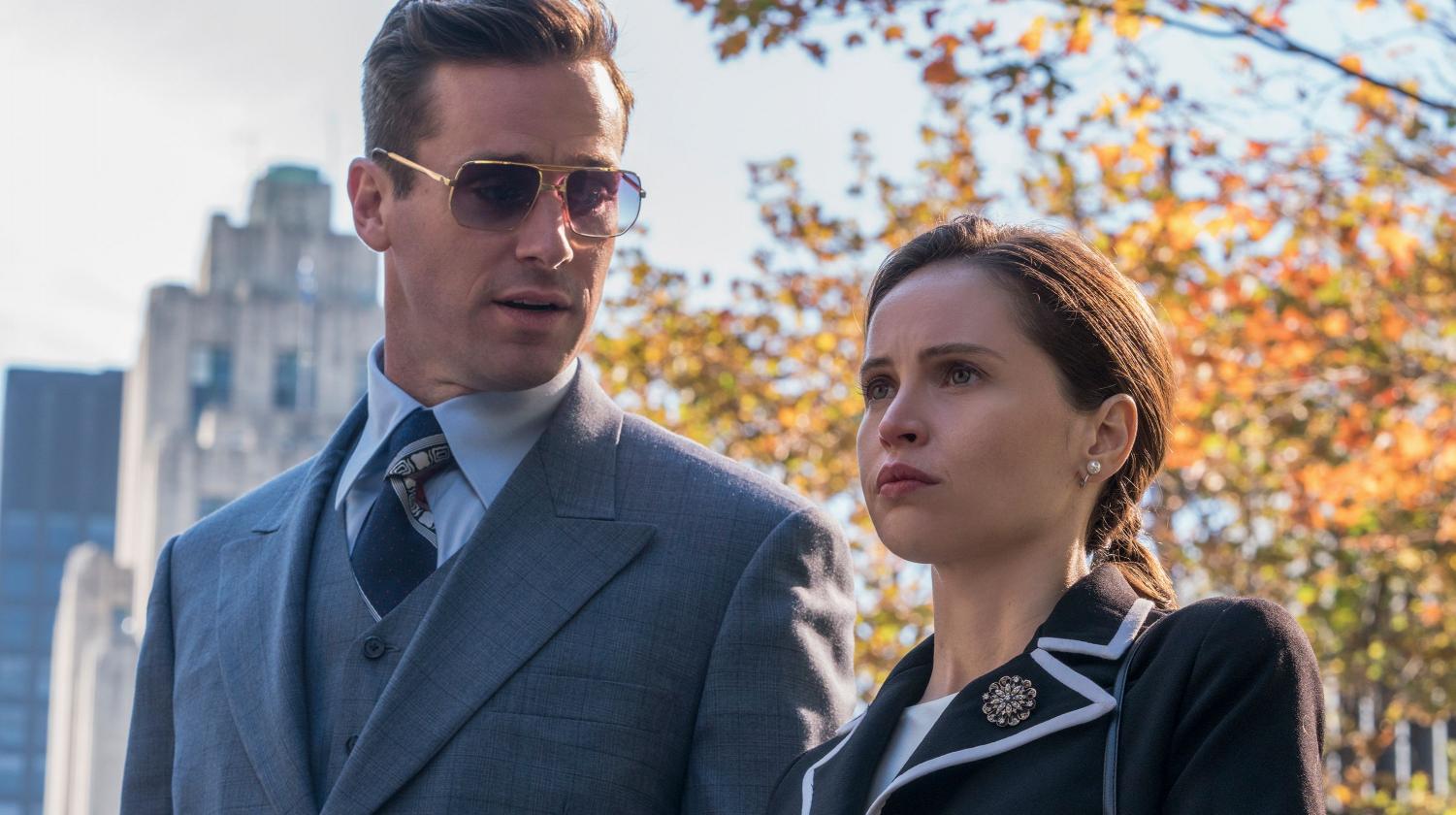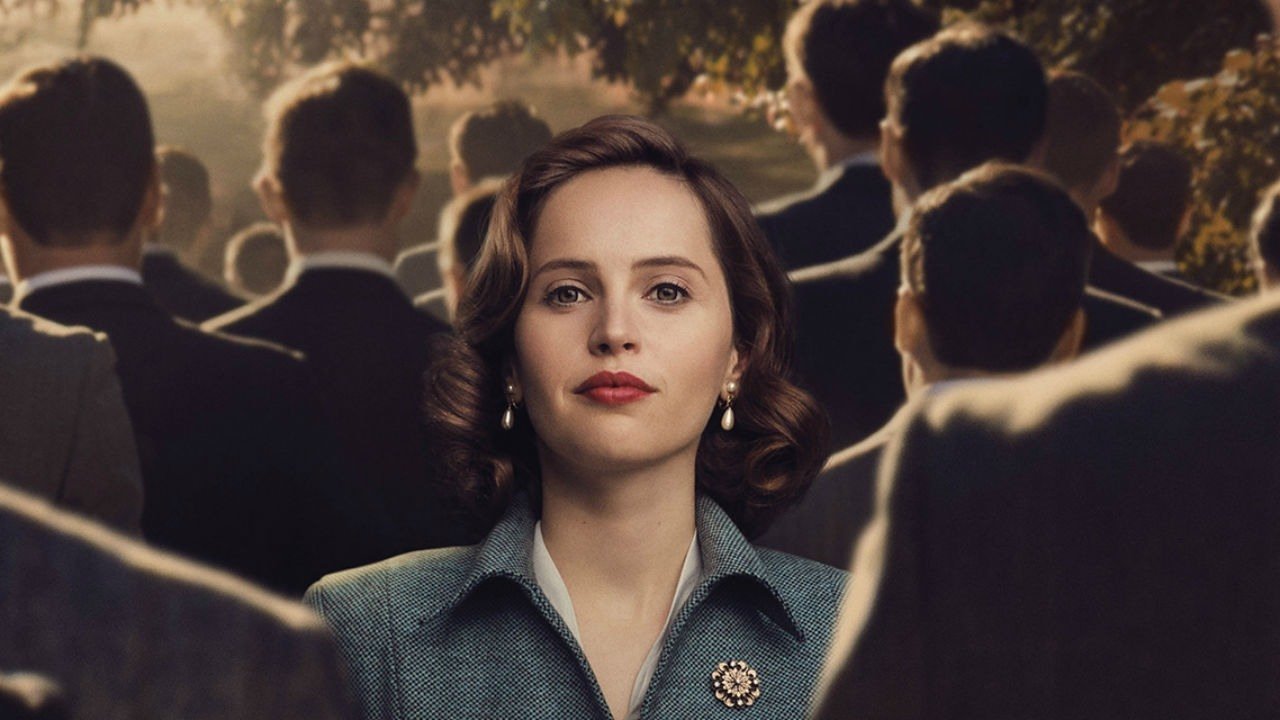“On the Basis of Sex” falls flat of its notorious subject matter
January 29, 2019
The notorious RBG is a personal icon for me, and I was very excited to see “On the Basis of Sex,” a film that I hoped would give insight into her rise from Brooklyn native to Supreme Court Justice and cultural powerhouse Ruth Bader Ginsburg. In addition, the film stars two of my favorite actors, Felicity Jones and Armie Hammer as Ruth and Marty Ginsburg, respectively, so all signs pointed towards a film that should’ve been right in my wheelhouse. Yet I found that the movie fell short due to a weak, campy script that only allowed the film to skim the surface of a far more interesting woman.
The film focuses on Ginsburg’s backstory and her journey as one of the first female students at Harvard Law. (In orientation, they give a speech about the classic “Harvard man,” alienating the very few women in the auditorium.) Her spunk is evident from the very first dinner party she attends, standing up to the dean with a classic Ginsburn (SNL, anyone?).
Ginsburg is faced with additional challenges in her life at Harvard when her husband Marty, a law student as well, is diagnosed with testicular cancer. The young couple, who have an infant daughter named Jane at home, have to adapt to this new hardship in their lives, and Ruth steps up, attending both her and Marty’s classes so that he doesn’t fall behind.
Jones and Hammer are very charming as the Ginsburg couple, and both do a valiant job with the script that they were given. In addition, their supportive relationship stands out throughout the film, acknowledging the supportive nature and importance of her husband while not crediting him for her success.

Although the acting is strong, the film fell short to me in its script, written by Daniel Stiepleman. The first thought that I had while in the theater was that it sounded like something a high schooler would’ve written if tasked to write a Ruth Bader Ginsburg biopic. While it’s sweet to see the domestic life of the Ginsburg family, it sometimes reads as a Rarty fanfic, making it the most expensive historical fanfic every produced.
This campiness translates into scenes that are mainly symbolic for a larger element of RBG’s journey or character. For example, Ruth and her daughter are leaving a law office when they’re heckled by construction workers via the most generic catcalling ever put on paper. Jane defends herself and her mother, and they victoriously climb into a cab. While it shows Ruth’s daughter’s strong willed personality and represents a real life event, the cliche dialogue and cherry-on-top resolution tie it up in far too picturesque bow.
The cinematography is okay but not exceptional, centered around plot rather than cinematic storytelling. On the other hand, the costumes are impressive, able to transport us through the 60s and 70s as Ginsburg transitions from college student to working woman.
While I found myself eye-rolling at the dialogue throughout the film, the movie did cover its bases and provide for an interesting story. However, given the iconic subject matter, I was sad that I found myself searching for more and walking out of the theater generally unimpressed.
Even though this film had its shortcomings, if you are an RBG (or Felicity Jones) fan, the ending shot is absolutely epic: Felicity Jones in a perfect blue suit walks up the steps of the capitol only to disappear behind a pillar to reveal the woman, the myth, the legend: Supreme Court Justice Ruth Bader Ginsburg.

